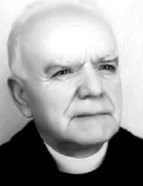

His extensive body of work is also present in many other journals and collective publications, including the Anais da Academia Portuguesa da História [Annals of the Portuguese Academy of History], the Boletim da Associação dos Arqueólogos Portugueses [Bulletin of the Association of Portuguese Archaeologists], the Boletim da Câmara Municipal do Porto [Porto City Council Bulletin], the Boletim do Ministério da Justiça [Ministry of Justice Bulletin], and the Boletim da Sociedade de Geografia de Lisboa [Bulletin of the Lisbon Geographical Society], journals such as Bracara Augusta, Brasilica, Didaskalia, Humanitas, and Panorama, as well as in the proceedings of the numerous conferences he attended, including the Luso-Spanish Congress for the Progress of Sciences, the Fifth International Colloquium of Luso-Brazilian Studies, the Fifth Centenary of the Death of Prince Henry the Navigator, Mélanges David Lopes e Pierre David Cénival. He contributed 640 entries to the Verbo Encyclopaedia (where he also served as director of the History section).
He is credited with the publication of Revista Portuguesa de Filosofia (Portuguese Journal of Philosophy), of which he was one of the first directors. He served as a member of the National Assembly (10th and 11th Legislatures 1969-1974), where he was part of the Second Section — Cultural matters. There, he contributed as a signatory/rapporteur on three documents: Press Law; 4th Development Plan Draft for 1974-1979 (Mainland and Islands) — Annex I — Education and culture and Professional training; 4th Development Plan Draft for 1974-1979 (Mainland and Islands) — Subsidiary opinion on Research and technological development. He was a member of the Centro de Estudos Demográficos [Centre for Demographic Studies] at the Instituto Nacional de Estatística [National Statistical Institute] and served as a representative of the Academia Portuguesa da História na Câmara Corporativa [Portuguese Academy of History in the Corporate Chamber].
We will now highlight one aspect of Domingos Maurício's work which, although not strictly "professional", was significant due to the dedication with which he pursued it until the end of his days. This involves educational and social work that transformed the Liberdade neighbourhood, a once very poor, dangerous, and infamous area. Although a secular initiative, spiritual assistance for the project had been entrusted to the Jesuits by Cardinal Cerejeira, and Domingos Maurício took on this responsibility from Fr. Joaquim da Silva Tavares (founder of Brotéria and, at the time, Superior of House of Writers of the Society of Jesus). The initiative expanded and developed into an independent organisation under the name "Educação Popular" [Popular Education], a name suggested by Domingos Maurício. In 1936, it was recognised as a "charitable work" and was awarded a commendation published in an ordinance dated 23 June of that year. Educação Popular expanded within the Liberdade neighbourhood with the creation of a primary school, a medical centre, a nursery and children's classes, a recreational group, and a local branch of the Young Christian Workers. The initiative became so extensive and commendable that, by decree on 11 November 1935, the Head of State awarded Domingos Maurício with the title of Officer of the Order of Merit. His concern and efforts also extended to the "bairros da lata" [slums] on the outskirts of Lisbon, where he secured significant improvements in sanitation, education, healthcare, and childcare from both public and private institutions. His on-site dedication was complemented by a theoretical reflection on social issues, as evidenced in his writings.
This work is financed by national funds through FCT - Foundation for Science and Technology, I.P, in the scope of the projects UIDB/04311/2020 and UIDP/04311/2020.
